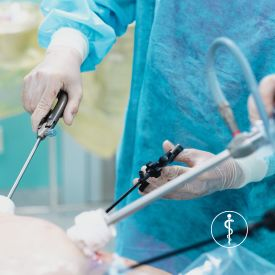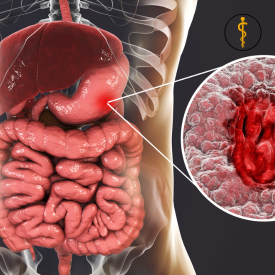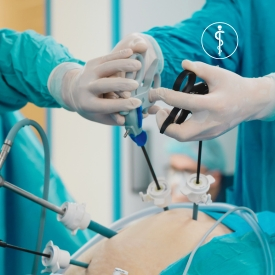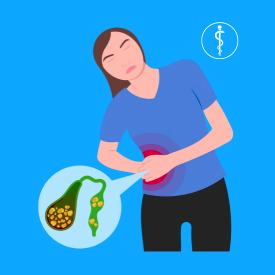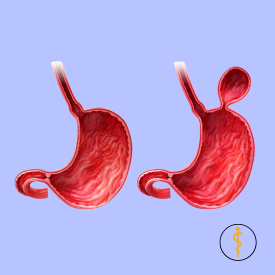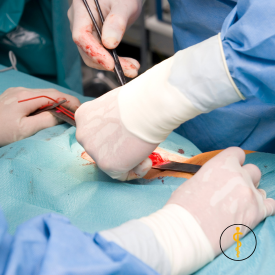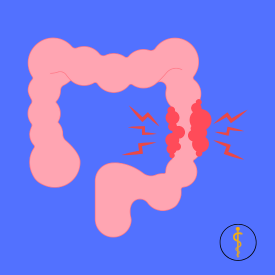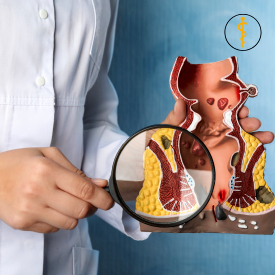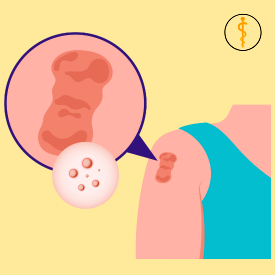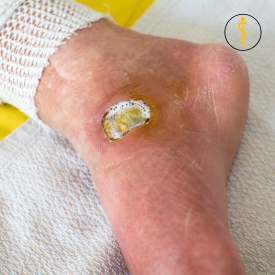What is a Hysterectomy?
A hysterectomy is a surgical procedure that involves the removal of the uterus and possibly the cervix. Depending on the medical condition, it may also require the removal of surrounding organs such as the fallopian tubes and ovaries. After undergoing a hysterectomy, you will no longer experience menstrual periods, and it will be impossible to become pregnant.
Dr. Mohit Agrawal in Kandivali is recognized as a leading expert in laparoscopic hysterectomy surgery.
With over 8 years of experience in gastrointestinal and laparoscopic surgeries, Dr. Agrawal has gained a reputation for his precision, patient-centered care, and excellent surgical outcomes. Dr. Mohit Agrawal offers laparoscopic surgery, a minimally invasive technique that ensures a quicker recovery, less pain, and smaller incisions compared to traditional open surgery. This advanced approach has made laparoscopic surgery the preferred choice for many patients.
Types of Hysterectomy
The type of hysterectomy required depends on your medical condition, and your healthcare provider will discuss the best option for you. In some cases, other surrounding reproductive organs may also be removed. The various types of hysterectomy include:
- Total Hysterectomy: The removal of both the uterus and cervix, leaving the ovaries intact. This option delays the onset of menopause.
- Supra cervical Hysterectomy: The upper part of the uterus is removed, leaving the cervix in place. Your fallopian tubes and ovaries may be removed simultaneously, but Pap smears will still be necessary.
- Total Hysterectomy with Bilateral Salpingo-Oophorectomy: This involves the removal of the uterus, cervix, fallopian tubes, and ovaries. You will enter menopause if the ovaries are removed.
- Radical Hysterectomy with Bilateral Salpingo-Oophorectomy: This type includes the removal of the uterus, cervix, fallopian tubes, ovaries, part of the vagina, and surrounding tissues. It is commonly performed in cases of cancer and induces menopause.
Conditions Treated with Hysterectomy
Hysterectomies are typically recommended when other treatments have not been effective or surgery is the only solution. Conditions that may necessitate a hysterectomy include:
- Heavy or abnormal vaginal bleeding
- Severe pelvic pain
- Uterine fibroids and tumors
- Endometriosis
- Uterine prolapse, leading to incontinence
- Cervical, ovarian, or uterine cancer
- Uterine lining conditions, such as adenomyosis
- Complications from childbirth
Many patients also choose a hysterectomy to reduce the risk of cancer, particularly if they have a high genetic predisposition.
Surgical Methods for Hysterectomy
Laparoscopic hysterectomy offers several benefits, including reduced scarring, faster recovery, and fewer complications compared to traditional open surgery. Dr. Mohit Agrawal performs the following types of laparoscopic hysterectomies:
- Vaginal Hysterectomy: Removal of the uterus through an incision made in the top of the vagina. It is minimally invasive, with no external incisions and a fast recovery time.
- Laparoscopic assisted Vaginal Hysterectomy: This procedure combines laparoscopy with vaginal surgery, using a small camera for better visibility while removing the uterus through the vagina.
- Total Laparoscopic Hysterectomy: Small incisions are made in the abdomen to insert a laparoscope and surgical instruments. The uterus is removed in small sections through these incisions.
- Robotic-Assisted Laparoscopic Hysterectomy: Similar to abdominal laparoscopy but with enhanced precision, a robotic machine aids the surgeon in performing the procedure.
Advantages of Laparoscopic Hysterectomy
The key benefits of laparoscopic hysterectomy include:
- Minimal scarring
- Shorter recovery time
- Reduced pain and discomfort
- Fewer complications, such as infections or blood loss
- Shorter hospital stays, with many patients going home the same day
Laparoscopic Hysterectomy Recovery and Aftercare
Recovery time varies based on the type of hysterectomy, but most patients are able to return to normal activities within four to six weeks. After a laparoscopic hysterectomy, recovery is typically quicker, with less pain compared to traditional abdominal surgery. During recovery, patients should avoid strenuous activities, heavy lifting, and sexual intercourse for up to six weeks.
Dr. Mohit Agrawal – Best Laparoscopic Hysterectomy Surgeon in Kandivali
Dr. Mohit Agrawal is a renowned specialist in laparoscopic surgery, offering advanced hysterectomy procedures with minimal discomfort and faster recovery times. His expertise ensures that each patient receives personalized care, with a focus on safety and optimal outcomes.
Dr. Mohit Agrawal’s expertise in laparoscopic hysterectomy combined with his patient-focused approach ensures that every individual receives the highest standard of care. He is committed to offering advanced, minimally invasive techniques that result in faster recovery, less pain, and optimal outcomes.
If you are considering a hysterectomy or need more information, please contact Dr. Mohit Agrawal’s clinic for consultation with Dr. Mohit Agrawal, the best laparoscopic surgeon in Kandivali, for expert advice and treatment options.

